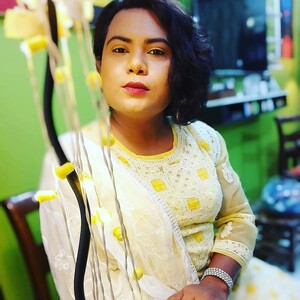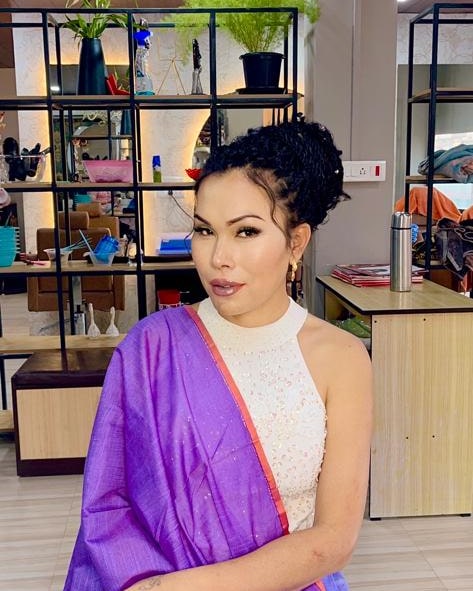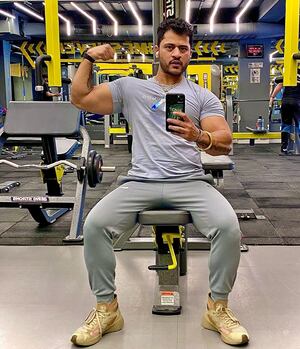Last Updated on November 3, 2023 by Neelam Singh
Nagpur-based Mohini’s friend met with an accident, resulting in a fractured leg due to a train accident. Mohini rushed her to a government hospital for treatment. However, as soon as they arrived at the hospital, Mohini observed strange behavior from the medical staff. “Nobody was willing to treat her. We repeatedly requested doctors and nurses for immediate treatment as she was bleeding profusely, but none of the hospital staff were willing to pay attention. After hours, my friend succumbed to her injuries due to excessive blood loss,” shared Mohini.

No doctor treated Mohini’s friend because both Mohini and her friend belong to the transgender community. Mohini also shared her own experience. Once, she had an issue with her breast and went to a government hospital for treatment. However, the gynecologist’s behavior was demeaning. “She asked her staff to examine me but didn’t even touch me to check what the issue was. When I asked her to examine me, she asked me to remove my clothes. The most embarrassing thing was that she didn’t even ask her male staff to leave before instructing me to undress. They were just standing there. I left the hospital without receiving any treatment,” Mohini explained.
She further added, “Medical staff in government hospitals don’t treat anyone well. They often behave as if they are authorities. Their treatment of us, especially as transgender individuals, is even worse.”
She mentioned that transgender individuals are usually asked to stand in a nearby washroom or by the dustbin because, “if we stand in the women’s queue, it makes women uncomfortable, and if we stand in the male queue, we transgender individuals feel uncomfortable. So, where are we supposed to stand?” Mohini questioned.
The scary truth of Trans people’s lives
Transgender individuals are often marginalized from childhood for being who they are, leading to financially unstable lives. ‘We earn about Rs. 7,000-10,000 per month through begging, celebrating special occasions, and other work. There are very few of us who are employed in corporate jobs and earn a decent income. Even if we are skilled and educated, we are not paid fairly. In such a situation, we can’t afford the services of private hospitals for medical care. Our only option is to seek healthcare facilities in government hospitals,’ added Mohini.

This is not the story of just a few transgender individuals who have faced discrimination and humiliation in government hospitals. Every person in the community has a different story to share. Another transgender person, Jerry from Lucknow, shared how she faced discrimination in a government hospital.”
Once, Jerry went to a government hospital for a medical test. She was wearing a mask, and her voice is so feminine that people usually don’t recognize her as male. Initially, she was standing in the male queue, but a hospital staff member asked her to move to the female queue.
“I removed my mask and said, ‘You don’t have a queue for people like me, who are transgender. Please create a queue for us, and we will stand there.’ When I said this, the staff members were looking at me as if they had no knowledge of transgender individuals at all. They gave me many perplexed looks,” shared Jerry, who is 26 years old.
The ugly reality of being Third Gender
Transgender individuals are recognized as the third gender by Indian law, alongside males and females. In 2014, the Indian Supreme Court passed the NALSA judgment, which states that transgender people should be recognized as a third gender and enjoy all fundamental rights, along with specific benefits in education and employment.
However, transgender individuals are often asked why they need a separate queue or different treatment. Jerry explained, “I believe we need a separate queue because we are different from both men and women. Just as males and females have separate queues, we, as the third gender, should also have our own. We are often assigned beds in male wards, which is a very uncomfortable situation for transgender individuals.” Jerry, a program officer for Uttar Pradesh with Humsafar Trust, identifies herself as a transgender person.
Jerry also mentioned that there are no separate toilets for transgender individuals. She said, “Transwomen are asked to use the male restroom, and transmen are directed to the female restroom.”
She added that those who have not undergone a full transition face the most difficulties in government hospitals. “Very few of us can afford gender-affirming surgeries (SRS) because they are expensive, and most transgender individuals do not have a stable source of income,” Jerry, aged 26, explained.
Illogical blood donation prohibition
Jerry pointed out several loopholes in the government’s medical services for transgender individuals. She emphasized that one of the biggest issues is the ban on transgender individuals donating blood. This prohibition is explicitly mentioned in the guidelines of The National Blood Transfusion Council (NBTC) and the National AIDS Control Organization.
According to clauses 12 and 51 of these guidelines, transgender persons, female sex workers, and men having sex with men are permanently prohibited from donating blood in India. This restriction is justified by categorizing them as belonging to the ‘at-risk’ category for HIV, Hepatitis B, and Hepatitis C.

Sheetal, a transgender person based in Puducherry, shared her personal experience. She used to donate blood on her birthday. However, a few years ago, when she disclosed her transgender identity to the medical staff before donating blood, she was denied. “They refused to allow me to donate blood without providing any convincing reason. They stated that I couldn’t donate blood according to the rules and regulations. It was unbelievable,” Sheetal, who is 48 years old, recounted.
Sheetal raised a critical question, saying, “Imagine that there are many people from the queer community who have been donating blood without revealing their identity. Furthermore, there are many heterosexual individuals with multiple sexual partners who donate blood. This is the most significant loophole in the system. On what basis are transgender individuals prohibited from donating blood?”
Sheetal has been actively involved in running community-based organizations, including SCOHD Society (Sahodaran Community Oriented Health Development Society). She has made significant contributions to the development of the LGBTQAI+ community at Mahatma Gandhi Medical College and Research Institute (MGMCRI) in Puducherry.
The road to equality is tough

Santa Khurai, an activist from Manipur, has been advocating for the rights of the transgender community. In 2021, she filed a petition in the high court challenging the transphobic guideline that prohibits transgender individuals from donating blood. The court has adjourned the hearing and has not provided a date for the final judgment. “I believe it will take time for the final judgment, just as it has for other judgments related to the community,” Santa commented.
Dr. Aqsa Shaikh, a transgender doctor, argued that the prohibition is unscientific and illogical. “Blood undergoes screening before transfusion, and if it contains any transmittable disease virus, it is not used. Therefore, the ban on blood donation by transgender individuals is illogical,” Dr. Aqsa emphasized.
Failure of the government
Dr. Aqsa also pointed out that according to government guidelines, there should be at least one government hospital in every state that offers services like sex reassignment surgery (SRS) and other necessary healthcare services for transgender individuals. However, Dr. Aqsa noted that the government is failing to adhere to these guidelines.
On September 17, which also happens to be Prime Minister Narendra Modi’s birthday, Delhi’s Dr. Ram Manohar Lohia Hospital inaugurated the city’s first transgender clinic. Dr. Aqsa expressed her views, saying, ‘The initiative is both delayed and insufficient. It provides only hormonal services and does not offer SRS. Furthermore, it is not praiseworthy, as it is the responsibility of the Indian government to establish transgender clinics in every state. Moreover, presenting it as a birthday gift for PM Modi, given the inauguration on his birthday, is a reflection of the government’s failure to provide adequate healthcare facilities for transgender people in India.’
Hospital is a scary place
Recently, Sushant Divgikar aka (Rani Ko-HE-Nur) said while talking to THIP Media that many times trans people just don’t go to the hospitals because they are scared as to whether they will be treated with dignity or not. They fear getting raped by the ward boys. They are so tired of this. “There was a 15 year old trans child who had some lung conditions. Her lung was nearly punctured by some men doing sex with her,” told Sushant.

Delhi based Aryan Pasha is famous for being the first trans man bodybuilder of India. He is also an activist and he shared that there were many trans people who would not visit covid-19 vaccine centers during the pandemic because there was no separate queue for them and they were scared of getting bullied and humiliated. The trans activist Santa Khurai also shared, “Because of humiliating behavior of the government hospital staff, trans people avoid visiting hospitals and take medicine from drug stores if they face any health issues.”
Need to add Trans curriculum in medical studies
Everyone from transgender community people to activists for the community unanimously agreed that the government should conduct sensitisation programmes at the government hospitals often. Aryan Pasha, who faced discrimination at a government hospital when he went for a fungal infection treatment, believes that government medical staff needs to be taught about the LGBTQIA+ requirements.
“Medical syllabus only has male and female body anatomy. Why does it have no transgender anatomy? Unless and until the medical curriculum does not have a syllabus related to transgender’s body things won’t change,” said Aryan Pasha.
Currently, Pondicherry’s Mahatma Gandhi Medical College and Research Institute (MGMCRI) has a syllabus related to trans people in the medical studies for it’s students. “This is the only institute in India where transgender syllabus is included in the medical studies,” told Sheetal.
Disclaimer: Medical Science is an ever evolving field. We strive to keep this page updated. In case you notice any discrepancy in the content, please inform us at [email protected]. You can futher read our Correction Policy here. Never disregard professional medical advice or delay seeking medical treatment because of something you have read on or accessed through this website or it's social media channels. Read our Full Disclaimer Here for further information.

